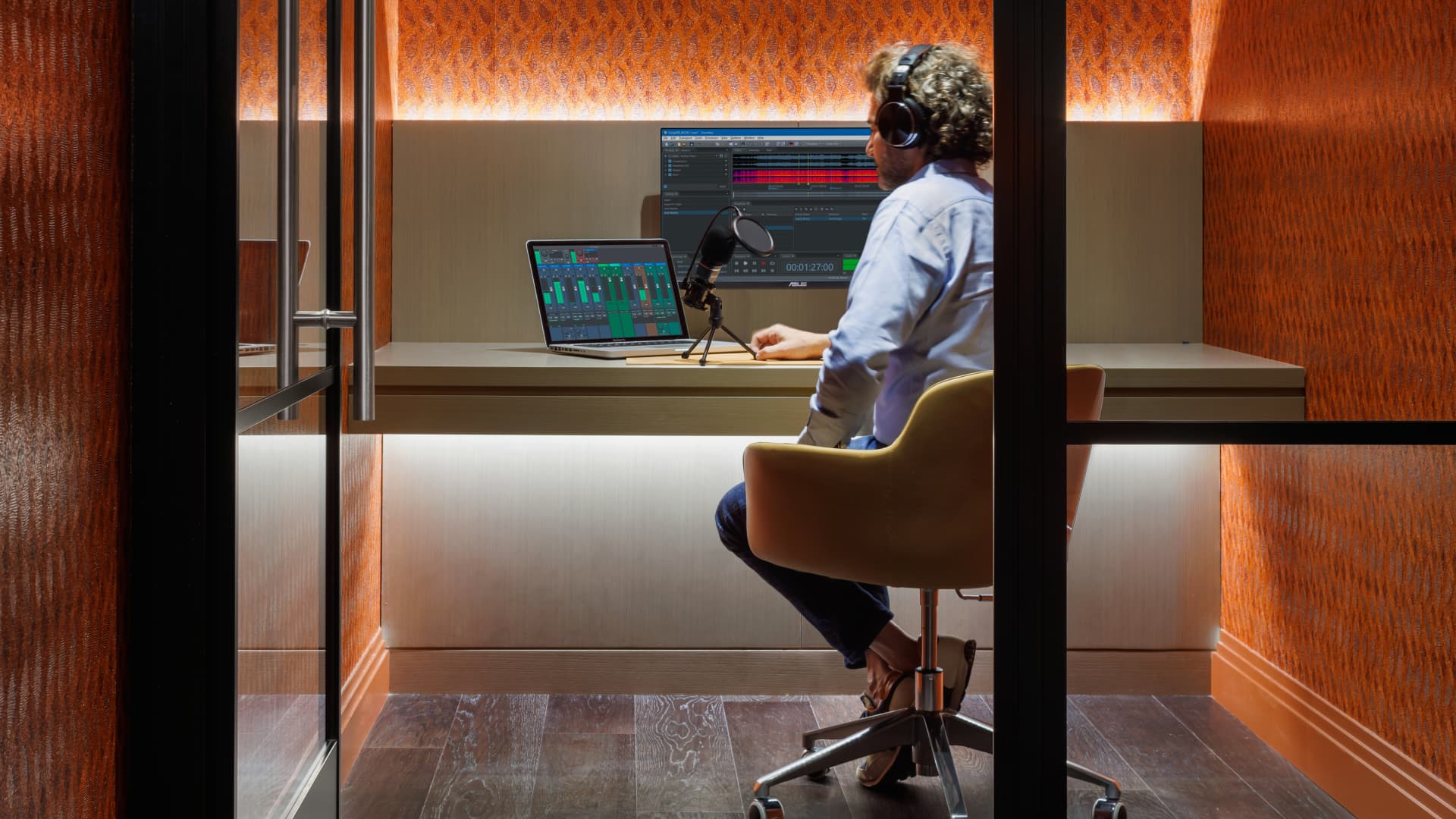Private phone booth at One Wall Street
Courtesy: One Wall Street
Luxury apartment buildings in New York City are now offering a new amenity: designated coworking spaces for remote workers. Developers are transforming these spaces into private offices, conference rooms, and even podcasting booths to accommodate the growing work-from-home trend. According to a recent survey by Pew Research Center, 59% of employees continue to work remotely for three or more days a week, and over a third of workers with remote-friendly jobs are still working from home full time.
The pandemic has shifted the focus towards coworking spaces. Matthew Villetto, executive vice president of Douglas Elliman Development Marketing, explains, “Coworking spaces were not a primary focus prior to the pandemic, but the pandemic shifts everything.”
Tenants are now seeking a “third space” – a place to work away from home and the office but still conveniently close. Buildings such as The Reserve, 450 Washington, and One Wall Street are adding various amenities to cater to this need, including phone booths, printing services, ergonomic chairs, audiovisual equipment, high-speed internet, and full-size kitchens.
While rent in these luxury buildings can be high, reaching up to $7,950 per month for a one-bedroom apartment and nearly $1 million for a studio, remote workers like Jessica Dang find it worthwhile. Dang, a resident at The Set and the founder of the lifestyle brand the Essentialist Method, appreciates the privacy and unique social aspect of coworking spaces.
Boardroom at 450 Washington
Courtesy: 450 Washington
Shifting focus
Real estate experts predict that the coworking trend will continue to grow, leading more apartment buildings to incorporate coworking spaces. “I think as the work-from-home trend settles in, there’s going to just be increased pressure on residential buildings to pick up that slack,” says Richard Dubrow, director of marketing at Macklowe Properties.
The rise of residential coworking spaces coincides with the struggles faced by public coworking spaces. WeWork, for example, issued a “going concern” warning due to a decline in memberships. This shift towards residential workspace amenities may also impact the commercial real estate market in New York City, as the office vacancy rate reached a record 17.4% in the first quarter of 2023. Landlords may need to consider repurposing vacant office spaces into flexible coworking or residential areas.
Co-working space at The Reserve
Courtesy: The Reserve
In conclusion, the demand for coworking spaces in luxury apartment buildings is on the rise, driven by the work-from-home trend. Developers are accommodating this demand by providing various amenities to enhance the remote working experience. As the coworking concept becomes more prevalent, residential buildings are expected to prioritize these spaces. This shift may also have implications for the commercial real estate market, as landlords seek innovative ways to utilize vacant office spaces.
Denial of responsibility! VigourTimes is an automatic aggregator of Global media. In each content, the hyperlink to the primary source is specified. All trademarks belong to their rightful owners, and all materials to their authors. For any complaint, please reach us at – [email protected]. We will take necessary action within 24 hours.


